When driving down one of Rwanda’s mountain roads, winding through terraced green valleys, I would often see Rwandese women walking gracefully with lidded baskets atop their heads.
These iconic baskets were originally used to store grains and at weddings to carry fruit and vegetables to the families.
Today, they have come to represent Rwandese culture and are a symbol of peace, hope, and opportunity.

History of the Rwanda Peace Basket
Basket weaving is an age-old pastime in Rwanda. In the evening, women and girls used to gather together and weave baskets, an activity that bonded neighbors and family members across generations.
Jeanne and Josee, two weavers with the artisan weaving cooperative Talking Through Art, recall their mothers weaving baskets when they were children.
The famous “Agaseke,” or “peace basket,” is a basket with a tall, pyramid-shaped lid; historically, it was a symbol of harvest time and plentiful food.
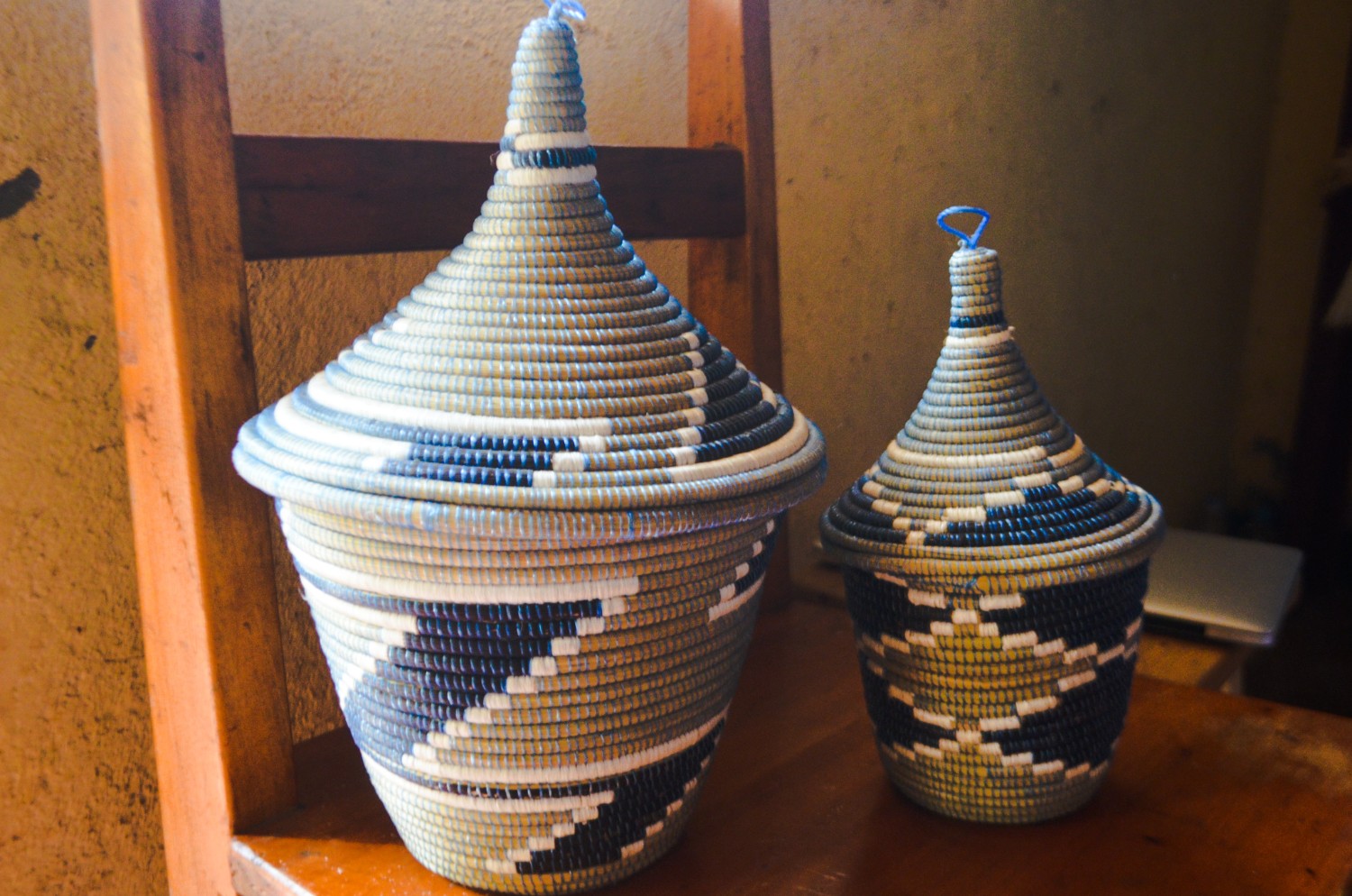
This practice was passed down from mother to daughter, from generation to generation, and symbolized a rite of passage into womanhood.
Today, the baskets also decorate homes, hotels, and restaurants across Rwanda and abroad.
There is such a deep sense of pride and cultural importance in this tradition that the basket now appears on the national seal and on Rwandan currency.
While these baskets are making a name for themselves in the design world, what is less known about them is their history.
Rwanda Post-Genocide
The centuries-old tradition of basket weaving has taken on a new significance in the wake of the 1994 genocide, hence why it has been aptly nicknamed the “peace basket .”
Following a violent and divisive period in Rwanda’s history during which neighbors and friends were pitted against one another, women were left to pick up the pieces of their broken nation.
The country slowly started to heal and rebuild itself through reconciliation and peace-building efforts. The age-old tradition of basket weaving paved a way for women to work collectively towards a renewed future.
Regardless of ethnic boundaries or past traumas, women came together and formed artisan cooperatives.
Through basket weaving, women were able to reunite, push forth creativity, and develop a way to support themselves and their families financially, all, while preserving an important Rwandese tradition.
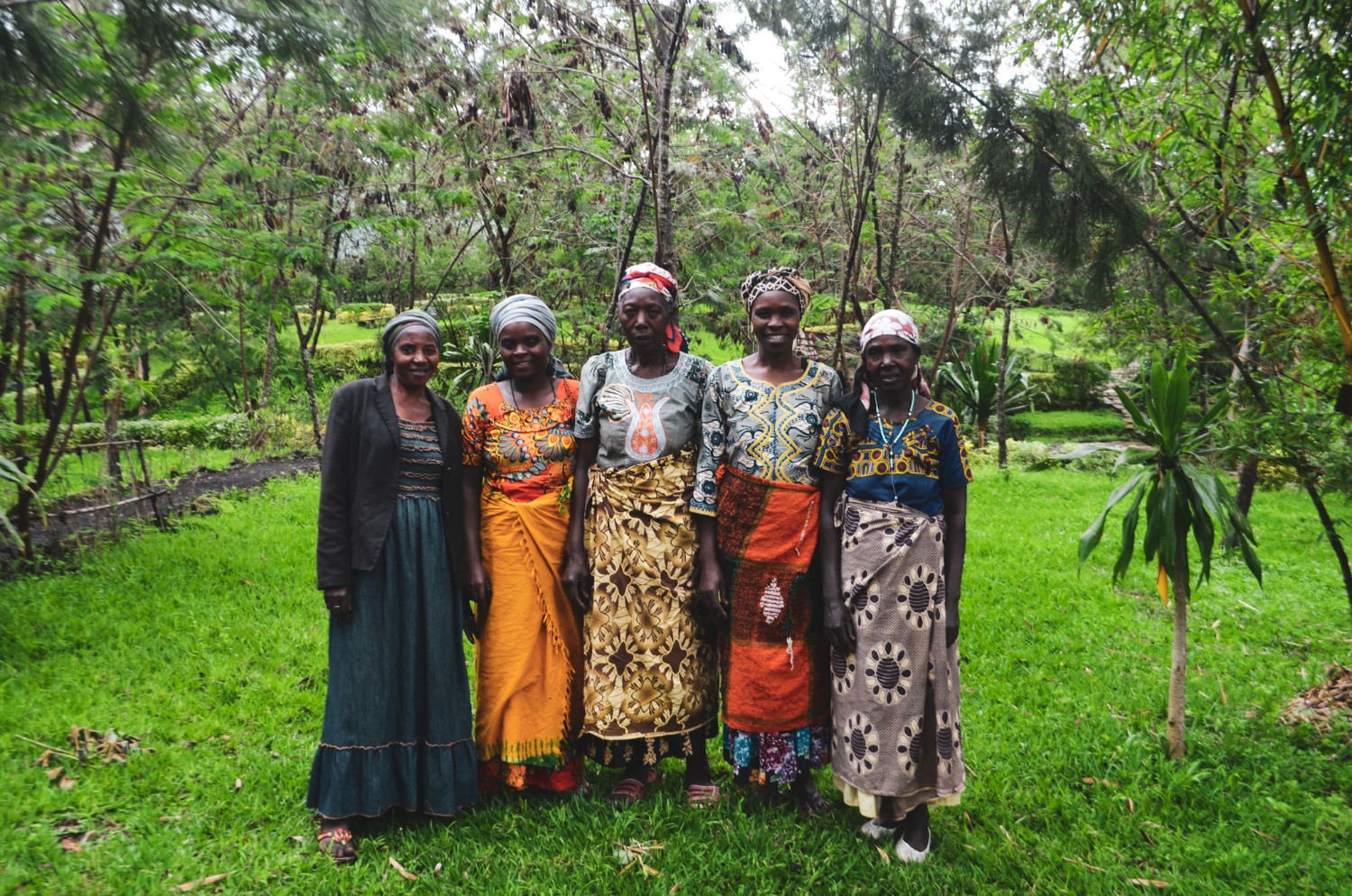
In reflecting on the importance of agaseke in Rwanda, Jeanne believes the baskets are both a symbol of peace and a symbol of culture.
Made from sisal fiber and grass, baskets are still widely used across the country for practical and for decorative purposes.
The baskets’ iconic zigzag patterns represent two women holding hands, a symbol of unity and hope for Rwanda’s future.
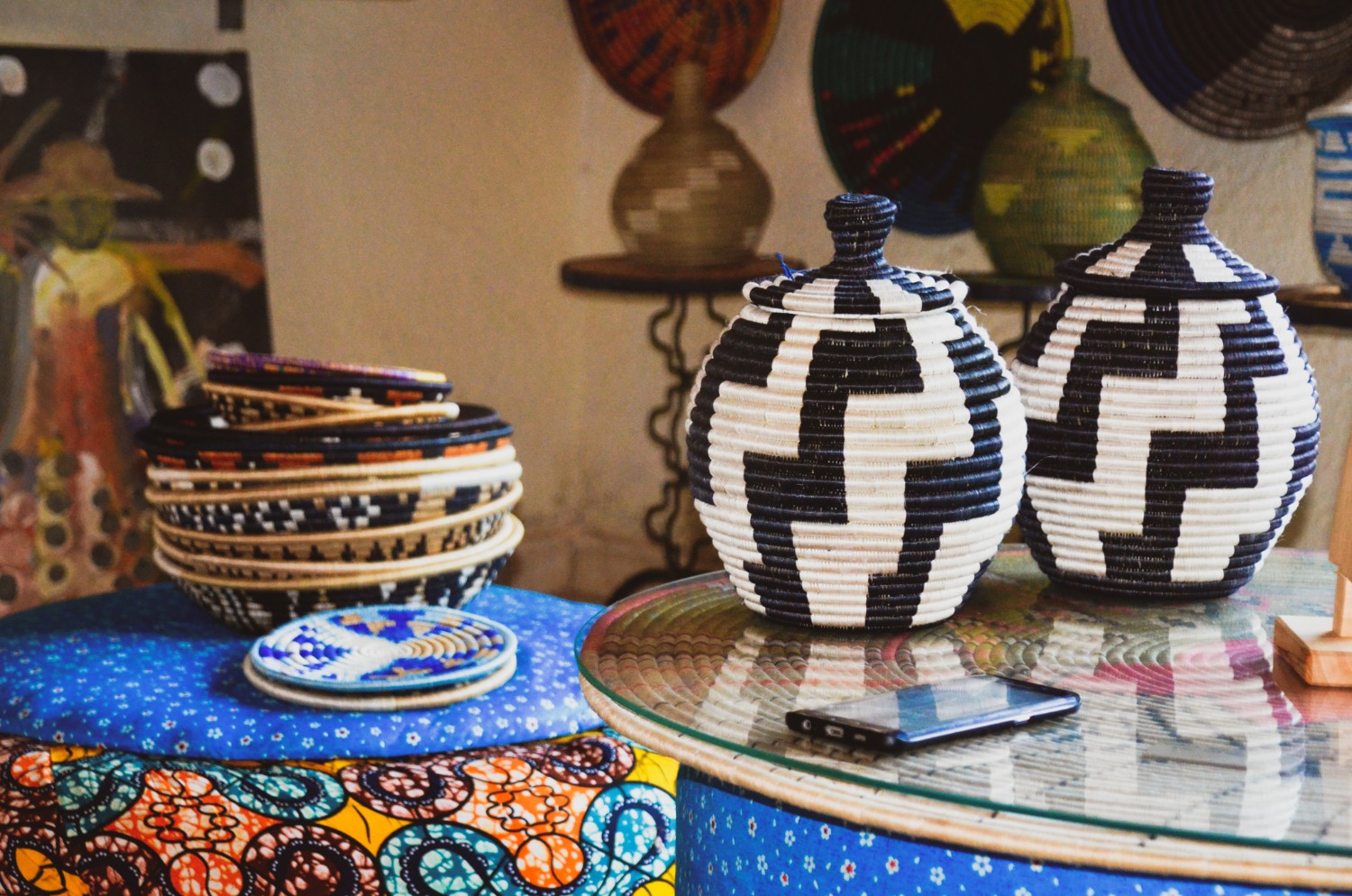
As weaving has evolved and expanded over the years, so have the designs and patterns. Baskets are now decorated with spirals, diamonds, and many other creative patterns in black and white, blues and greens, deep reds and purples, and natural shades of tan, orange, and brown.
Today, the diversification in design represents the ever-evolving creativity of artisan weavers. Yet the significance of agaseke remains unchanged: they represent hope, independence, and economic empowerment for Rwandese women.
Artisan Cooperatives in Rwanda
I have spent time living in and visiting Rwanda on and off since 2015. This has given me the opportunity to admire and learn about local craftsmanship on an intimate level. I’ve also become familiar with some of the cooperatives and their weavers personally.
The baskets are available at dirt-cheap prices in markets across Rwanda (and the greater East and Central African region). But these baskets are often produced at high volumes with little profits going towards the weavers themselves.
Over the years, many weaving cooperatives have emerged that provide Rwandese women with economic opportunities, a creative outlet, and a sense of community.
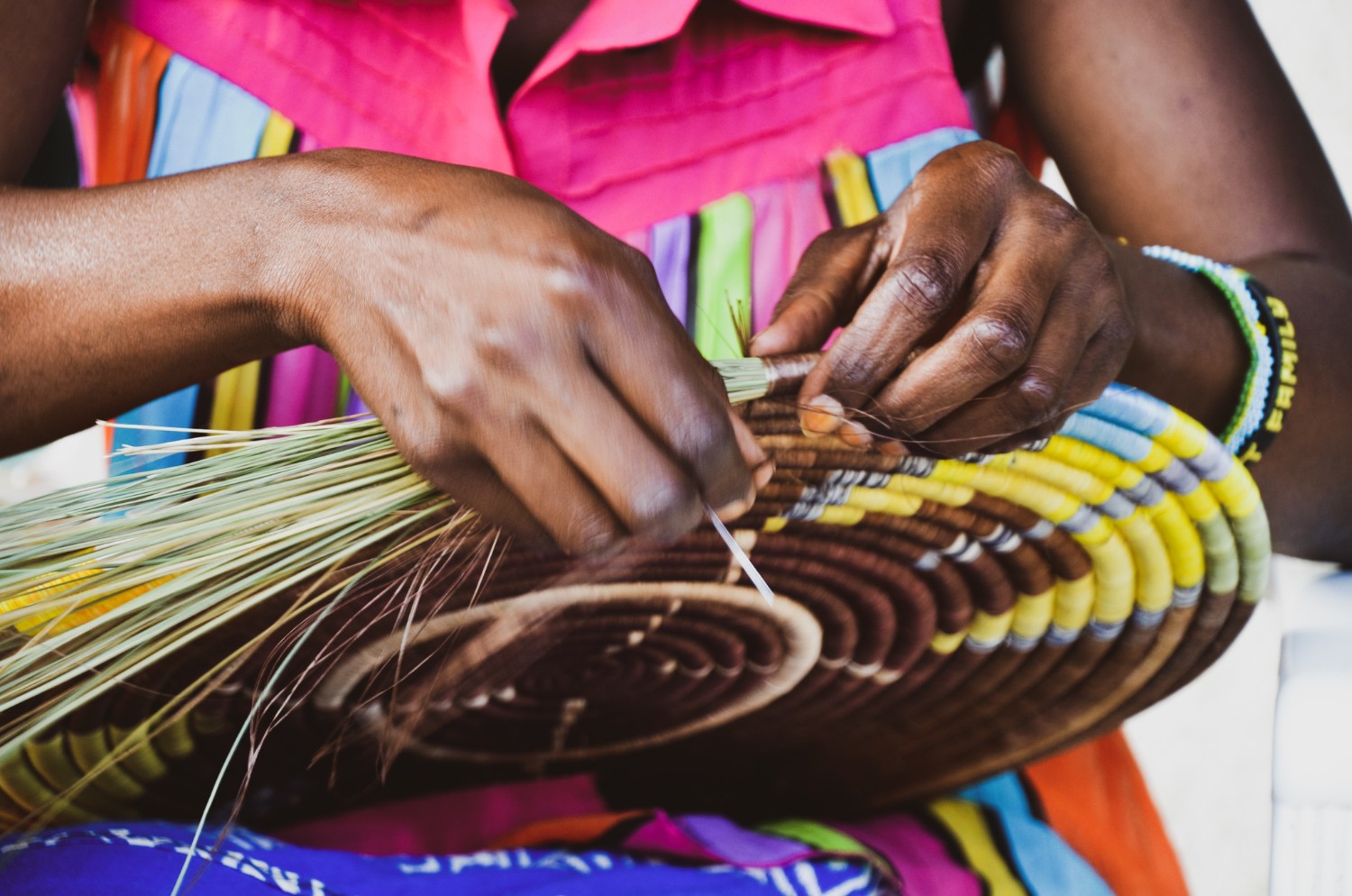
Employment opportunities are not always easy to come by, especially in rural areas of Rwanda.
Although gender equality is a topic of central concern in Rwanda, there is still a significant disconnect when it comes to women’s empowerment. Much of this is apparent in the education and work opportunities available for Rwandese women.
Women often take up household duties or work in casual labor. The lack of training, as well as the lack of employment opportunities in Rwanda, are disproportionately felt by women.
Basket weaving has come to be an important source of employment. It fills a gap and provides women with a means to support themselves and their families.
Through weaving cooperatives, women gain skills, confidence, a community, and a sense of independence.
They are also often offered additional skills such as English classes or financial management classes.
Most importantly, women are given control over their future and can invest in their livelihood as well as that of their children.
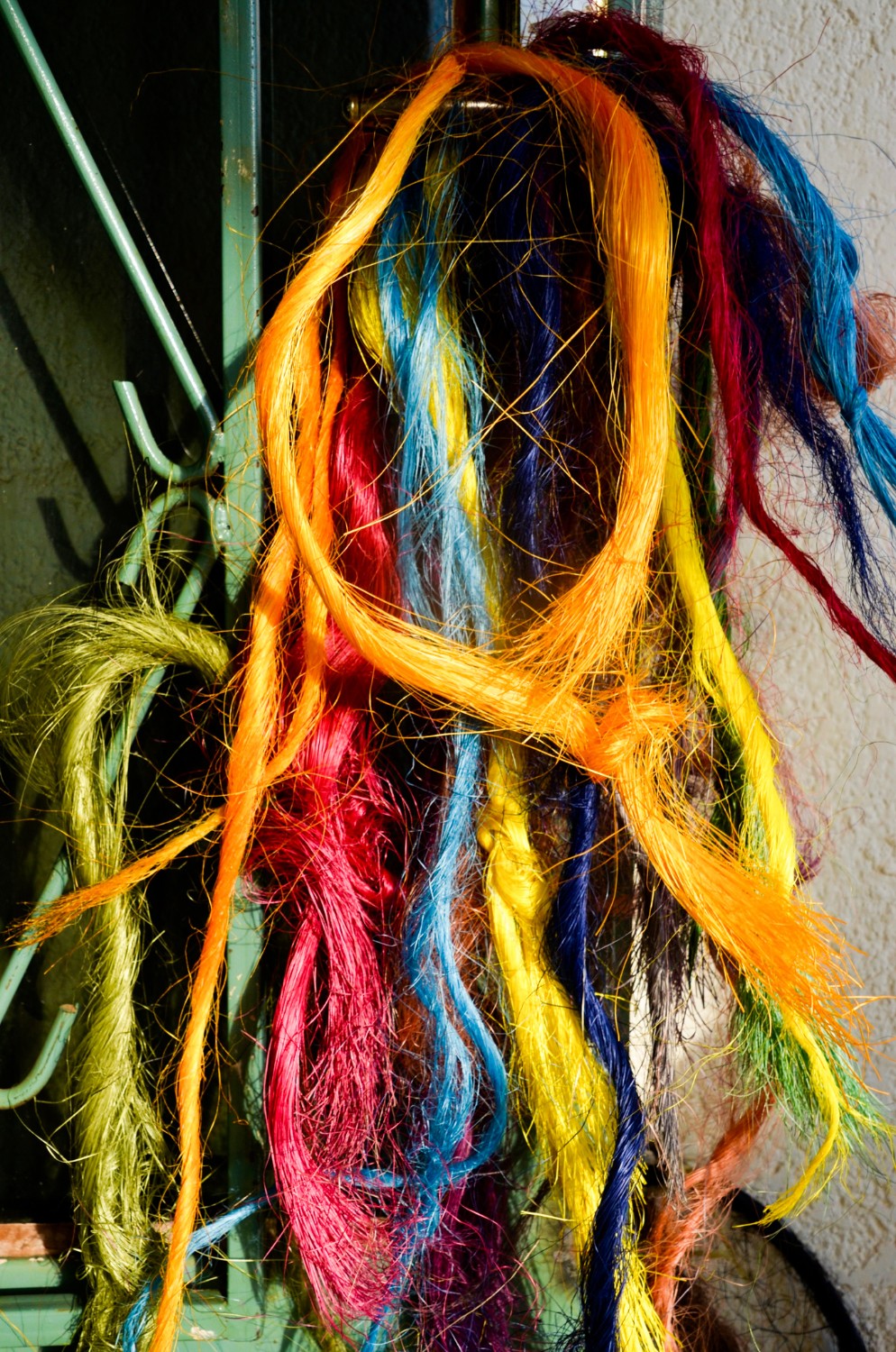
Talking Through Art
Talking Through Art is situated in a large house and courtyard down a red dirt road in a Kigali suburb.
Upon entering the gate, I felt as if I were coming home. Women were sitting in the garden weaving and talking.
Over a cup of tea, I sat down with a dedicated volunteer in the colorful showroom to learn more about the story behind Talking Through Art, a weaving and art initiative that employs women with physical disabilities.
The company was founded in 2015 by Petr Kočnar, a young professional from the Czech Republic. While walking the streets of Kigali, he noticed disabled women sitting on the streets with no jobs.
Petr used his background in art as inspiration to start his NGO, which would put to use the benefits of art therapy for the women, while also generating economic opportunity.
Talking Through Art has two groups of women: one in Kigali and one in Muhanga, which is a smaller town about an hour outside of the capital.
Recognizing the importance of helping the next generation, Talking Through Art pays the school fees of the children of the employees.
Jeanne stated that not only has Talking Through Art helped her not have to work as a fruit seller anymore, they have also helped her son to complete a certification program at school.
“Talking through Art helped me to stand and find my new ways of life through training,” Jeanne commented.
I had the pleasure of meeting Emmiliene and Josee, who were in the office weaving the day I visited. Both women work as weavers as well as weaving teachers.
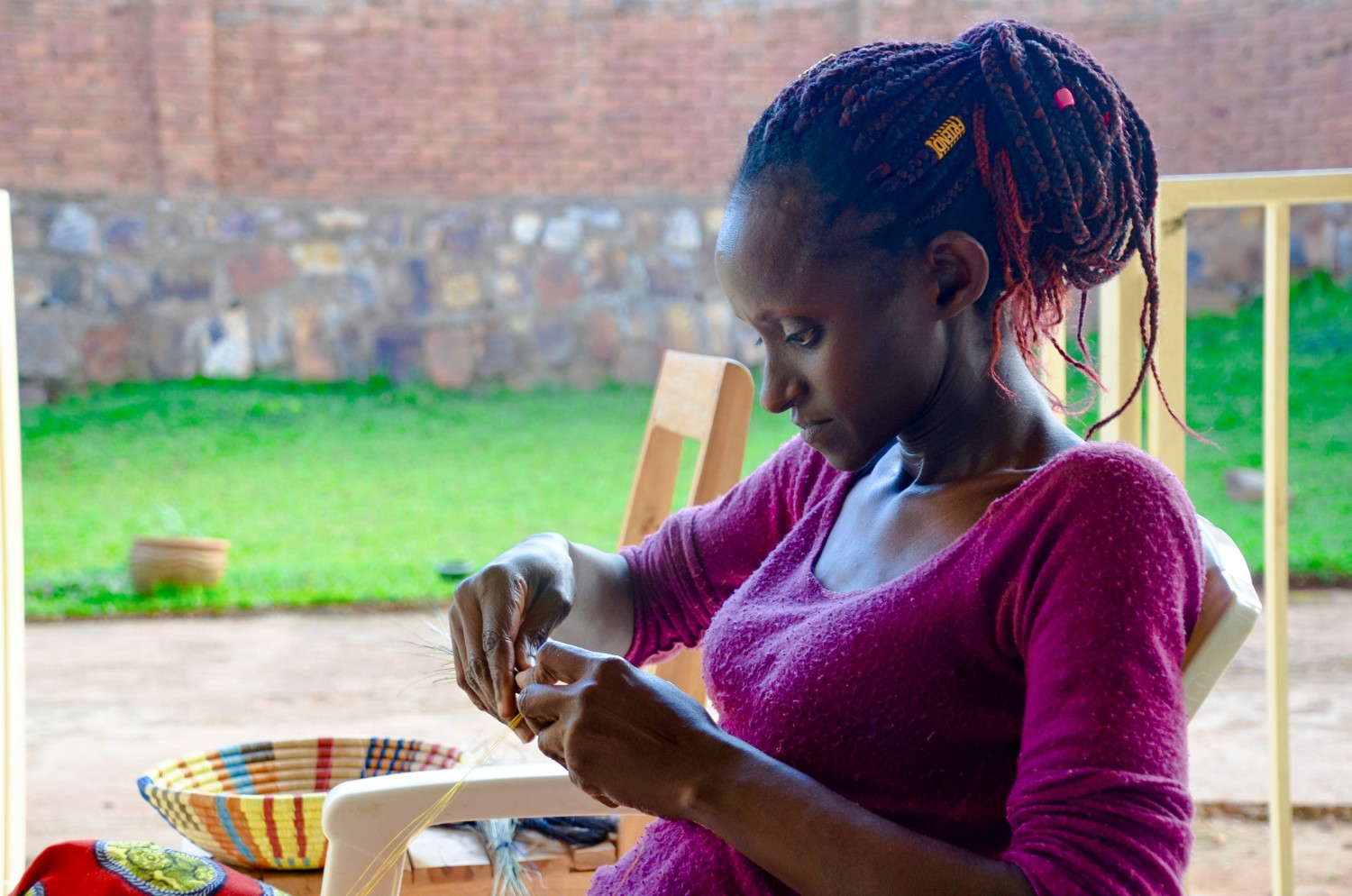
Without hesitation, Josee and Emmiliene agreed that working with Talking Through Art has helped them become independent and stable.
Behind shy smiles, they proclaimed that they are proud to no longer have to ask for help but, rather, can provide for themselves and their families.
For Emmiliene, Talking Through Art helped her to have hope for starting a new life.
She said, “I think that I have the same right with others who are not disabled… I am now a professional weaver because of Talking Through Art and I am also able to speak and listen to English.”
According to Josee, Talking Through Art has helped both her and her child with financial stability.
In reflecting on how Talking Through Art has changed her life, she commented, “Before I came to Talking Through Art, I was feeling alone but now I no longer have those thoughts because I understand well how my life is valuable.”
She went on to say, with the help of Talking through Art, “I have learnt that disability is not inability.”
Red Rocks Cooperatives
Red Rocks began in 2013 as an initiative to promote Rwandese culture, conservation, and community development in Rwanda’s Northern Province, which sits on the cusp of Volcanoes National Park.
A major part of Red Rocks is the support of women’s cooperatives in the area. For the last seven years, Red Rocks has worked to support ten weaving cooperatives in Musanze.
Throughout my time in Rwanda, I made a number of trips to Musanze and the surrounding area, characterized by its abundant and vividly green mountains and volcanic lakes.
During my time spent at Red Rocks, it was clear that this was a center for learning and for opportunity.
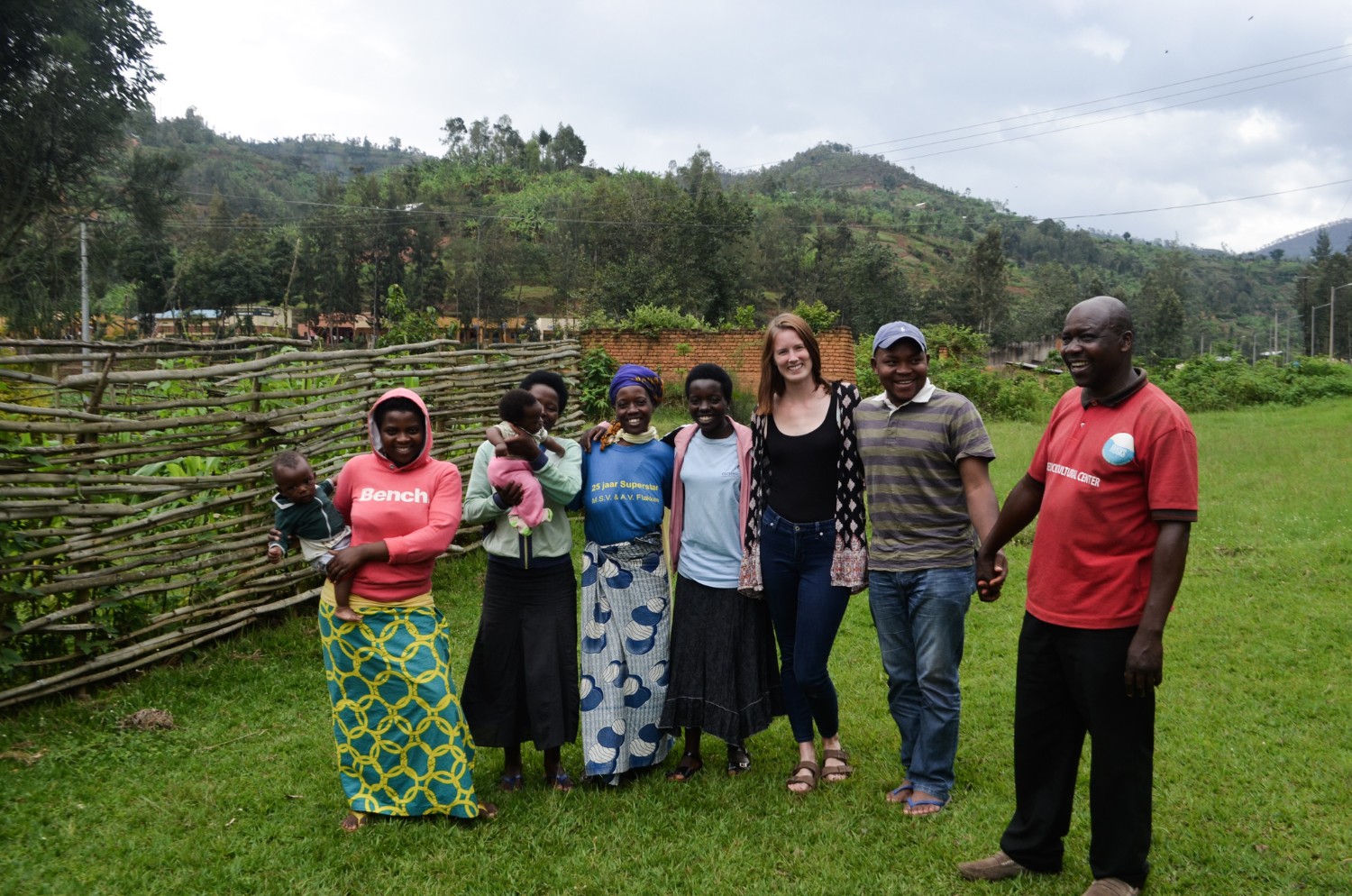
Greg Bakunzi, founder of Red Rocks, said, “We realized that weaving empowers women. Our mission is to help those vulnerable Rwandan women and empower them to escape from poverty.”
Prior to working with Red Rocks as weavers, most of the women were unemployed or worked in casual labor or subsistence farming.
Even though many of the women had the skills to weave before, raw materials were difficult to obtain. Red Rocks has helped with the acquisition of necessary materials for baskets.
Traditional weaving has now empowered women to earn their own living, pay school fees for their children, buy health insurance, and some have even managed to purchase pieces of land and small livestock.
Beyond simply the material benefits from the baskets, there was a palpable sense of joy among the women.
Many of them wore the test of time on their faces, weathered and tired, yet resilient.
Life as a woman in rural Rwanda is not easy and many have faced seemingly insurmountable obstacles. For them, the opportunity to have economic freedom, as well as a sense of community, is extraordinarily valuable.
Without fail, my meetings with the women would always end with everyone standing up and singing and dancing.
Simply being there together, full of hope and opportunity, summoned a reason to celebrate.
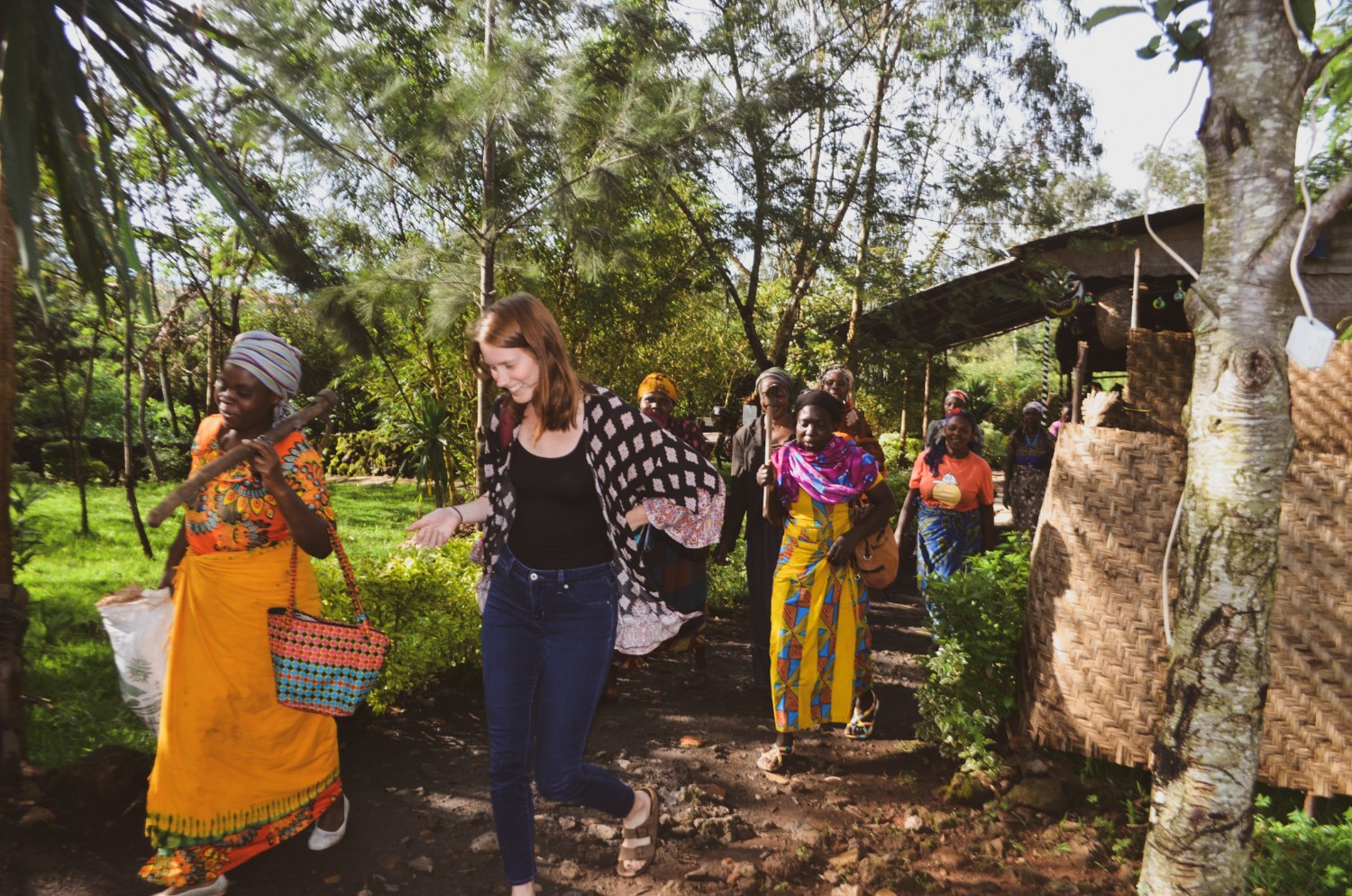
Weaving Towards a Future
If you ever find yourself among the green mountains of Rwanda, stop and look a little closer at the baskets. Maybe even take a weaving class yourself!
There are numerous respectable weaving cooperatives to visit and support, all of which come with their own compelling story.
Some of my other favorites include Gahaya Links, Nyamirambo Women’s Center, and Azizi Life.
For all of the women I met and interviewed, weaving is so much more than just a job. It is a way to create a community, to develop skills, to build confidence, and to gain financial freedom.
This tradition passed down through generations has helped to reunite and strengthen a nation.







